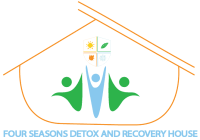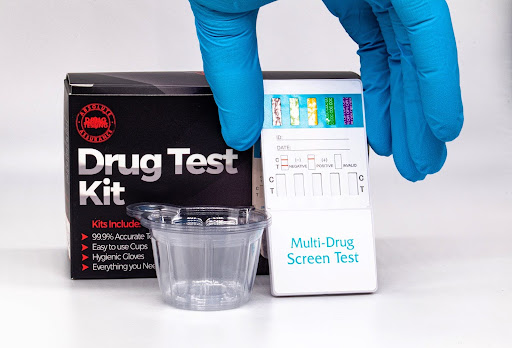Home drug tests have become increasingly popular as a means for parents and guardians to monitor their teenagers for substance abuse. These tests provide a convenient and relatively affordable way to check for the presence of illicit drugs in the privacy of one’s own home. However, many parents wonder if teens can successfully cheat on these tests. In this article, we will delve into the truth behind this question and explore the accuracy of home drug tests, the factors that can affect their reliability, and the dangers of attempting to cheat.
Understanding the Accuracy of At-Home Drug Tests
One of the primary concerns parents have when it comes to home drug tests is their accuracy. After all, the results of these tests can have significant implications for a teenager’s future. The good news is that home drug tests have come a long way in terms of accuracy. Most reputable brands claim to have a high degree of accuracy, often boasting a detection rate of over 99%. However, it is important to note that no test is perfect, and there is always a small margin of error.
Factors That Can Affect the Accuracy of At-Home Drug Tests
While home drug tests are generally reliable, there are certain factors that can affect their accuracy. One such factor is the quality of the test kit itself. Not all home drug tests are created equal, and some may be more accurate than others. It is important to choose a reputable brand and follow the instructions carefully to maximize the accuracy of the test.
Another factor that can influence the accuracy of a home drug test is the timing of the test. Different drugs have different detection windows, which refers to the period of time during which a drug can be detected in a person’s system. For example, marijuana can typically be detected in urine for up to 30 days, while cocaine may only be detectable for a few days. It is crucial to understand these detection windows when administering a home drug test.
Additionally, the way in which the test is conducted can also impact its accuracy. Improper collection of the sample, contamination, or mishandling of the test can lead to false results. It is essential to carefully follow the instructions provided with the test kit and ensure that the sample is collected and handled correctly.
Tips for Passing a Home Drug Test Legitimately
While the idea of cheating on a home drug test may be tempting for some teenagers, it is important to emphasize the importance of honesty and integrity. Instead of trying to cheat the test, there are legitimate ways to pass a home drug test. Here are some tips to help teenagers who may be facing a drug test:
Abstain from drug use: The most foolproof way to pass a drug test is to avoid using drugs altogether. By abstaining from drug use, teenagers can ensure that they will pass a home drug test with flying colors.
- Drink plenty of water: Drinking plenty of water can help flush out any traces of drugs from the system. However, it is important not to overdo it, as excessive water intake can lead to diluted urine, which may be flagged as a suspicious sample.
- Eat a healthy diet: A healthy diet can support the body’s natural detoxification processes. Consuming fruits, vegetables, and fiber-rich foods can help eliminate toxins from the body more efficiently.
The Dangers of Attempting to Cheat on a Home Drug Test
While some teenagers may consider cheating on a home drug test as a means to avoid detection, it is crucial to highlight the dangers associated with this behavior. Firstly, attempting to cheat on a drug test is dishonest and undermines the trust between parents and teenagers. Trust is a fundamental component of any healthy relationship, and attempting to deceive loved ones can have long-lasting consequences.
Moreover, the methods used to cheat on a home drug test can pose serious health risks. Some common methods include using synthetic urine, diluting the sample with water, or substituting someone else’s urine. These methods not only carry the risk of getting caught but can also lead to legal consequences and jeopardize a teenager’s future.
Common Methods People Use to Fake a Home Drug Test
While attempting to fake a home drug test is strongly discouraged, it is important to be aware of the methods people may use. Synthetic urine is one such method that is often marketed as a foolproof way to cheat a drug test. However, it is crucial to note that advancements in drug testing technology have made it increasingly difficult to deceive these tests.
Another common method is diluting the urine sample by drinking excessive amounts of water. While this may temporarily reduce the concentration of drugs in the urine, it can also lead to a diluted sample, which may be flagged as suspicious. Additionally, some individuals may try to substitute their urine with someone else’s clean urine. However, this method carries the risk of detection and can have serious consequences if caught.
The Limitations and Risks of Faking a Home Drug Test
While some individuals may believe they can successfully fake a home drug test, it is important to understand the limitations and risks associated with these methods. As mentioned earlier, advancements in drug testing technology have made it increasingly challenging to deceive these tests. Many home drug tests now include measures to detect synthetic urine or adulterated samples.
Moreover, faking a drug test not only carries the risk of getting caught but can also have legal consequences. Depending on the jurisdiction, attempting to cheat on a drug test may be considered a criminal offense. These legal repercussions can have a lasting impact on a teenager’s future, including educational and employment opportunities.
Alternatives to Home Drug Tests for Parents and Guardians
While home drug tests can provide valuable insights into a teenager’s drug use, they are not the only option available to parents and guardians. Other alternatives include seeking professional help and support for substance abuse. There are numerous resources available, such as addiction counselors, therapists, and support groups, that can provide guidance and assistance to both teenagers and their families.
Additionally, open communication and trust are crucial in addressing drug use in teens. Creating a safe and non-judgmental environment where teenagers feel comfortable discussing their struggles and seeking help is essential. By fostering a supportive atmosphere, parents and guardians can encourage their teenagers to make healthier choices and seek assistance if needed.
Seeking Professional Help and Support for Substance Abuse
If a teenager’s drug use becomes a cause for concern, it is important to seek professional help and support. Substance abuse is a complex issue that often requires specialized intervention. Addiction counselors, therapists, and treatment centers can offer comprehensive assessments, individualized treatment plans, and ongoing support to help teenagers overcome their substance abuse issues.
Parents and guardians should consider reaching out to these professionals who specialize in treating adolescent substance abuse. They can provide guidance on the most appropriate course of action and connect families with the resources necessary to facilitate the recovery process.
Conclusion: The Importance of Open Communication and Trust in Addressing Drug Use in Teens
In conclusion, home drug tests can be a valuable tool for parents and guardians in monitoring their teenagers for substance abuse. While there may be a temptation to cheat on these tests, it is essential to emphasize the importance of honesty and integrity. Instead of resorting to deceptive methods, open communication, trust, and seeking professional help are far more effective ways to address drug use in teens.
By fostering a supportive environment and maintaining open lines of communication, parents and guardians can encourage their teenagers to make healthier choices and seek assistance if needed. Substance abuse is a serious issue that requires compassion, understanding, and appropriate intervention. Let us prioritize the well-being of our teenagers and provide them with the support they need to lead fulfilling and drug-free lives.



